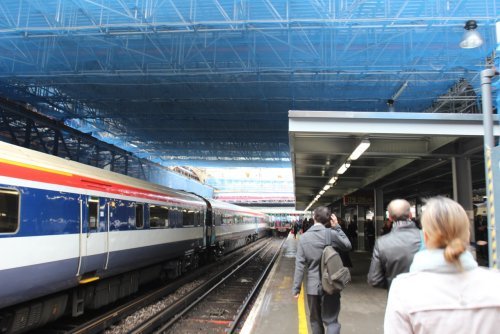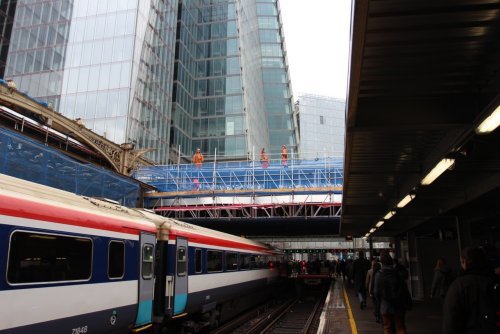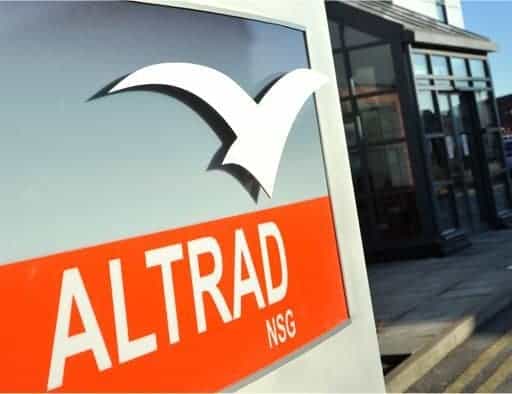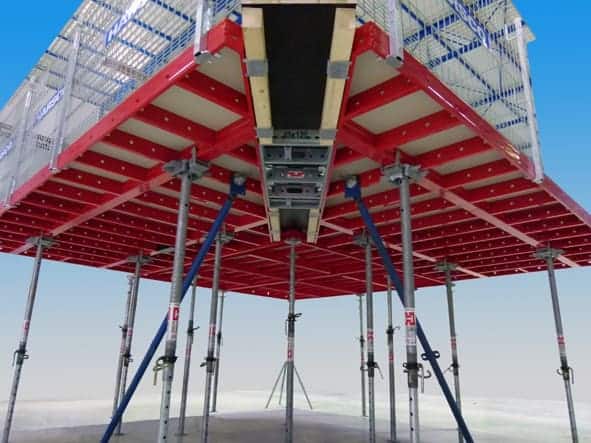
Major scaffolding collapse could’ve happened in Manchester

Company boss fined after scaffolder fell to his death

Introducing our new Scaffolding Jobs Board
 We have recently added a great new feature on the site.. Introducing our new daily updated Scaffolding Jobs Board.
Job Seekers: Find your perfect Scaffolding Job here, search, view and apply for all types of scaffolding related jobs from around the world.
Employers: Reach thousands of potential employees by posting your own scaffolding jobs for FREE. We also give you the option to choose a premium listing for your job posting increasing your ad exposure for 30 days. With a premium listing your job will be promoted on every page of Scaffmag.com and promoted using our social media channels (Facebook & Twitter)
With this new upgrade we are able to offer job seekers the very latest available scaffolding jobs within the United Kingdom and globally. We can also offer employers the opportunity to themselves post 30 day job advertisements on site FREE of charge. Also available is a premium option for extra exposure to a targeted audience. Please try it out for yourself by visiting our jobs board today.
We have recently added a great new feature on the site.. Introducing our new daily updated Scaffolding Jobs Board.
Job Seekers: Find your perfect Scaffolding Job here, search, view and apply for all types of scaffolding related jobs from around the world.
Employers: Reach thousands of potential employees by posting your own scaffolding jobs for FREE. We also give you the option to choose a premium listing for your job posting increasing your ad exposure for 30 days. With a premium listing your job will be promoted on every page of Scaffmag.com and promoted using our social media channels (Facebook & Twitter)
With this new upgrade we are able to offer job seekers the very latest available scaffolding jobs within the United Kingdom and globally. We can also offer employers the opportunity to themselves post 30 day job advertisements on site FREE of charge. Also available is a premium option for extra exposure to a targeted audience. Please try it out for yourself by visiting our jobs board today. XERVON Palmers London Bridge Station roof project nears completion
 Leading scaffolding contractor, XERVON Palmers, are in the final stages of a 14-month contract worth £20 million to deconstruct the train shed roof at the historic, busy London Bridge Railway Station – opening up the station to the sky for the first time in over 100 years.
[dropcap]C[/dropcap]rucially, the XERVON Palmers contract has been completed without the use of major cranes and with all railway operations continuing as normal, 24-hours a day – with the station still capable of serving its 100,000+ passengers per day, and no disruption to station operations, or traffic surrounding the venue – with XERVON Palmers running a separate day and a night shift of operatives and managers.
The huge project – which included creating a structurally-supportive 18,000 square metre protection deck running the full 70m across the station with some 10,000 aluminium special access panels and 350 tonnes of temporary steel and a secondary mobile access system – is part of a £600 million, five year long (running to 2018) refurbishment programme aiming to successfully redevelop one of London’s most historic and busy stations, in partnership with main contractor Costain and Network Rail.
In addition to the design and construction of the mobile protection deck (rolled into place using modern ‘cassette’ techniques), the sequenced, safe removal of the dilapidated, historic, crescent-shaped train shed roof and the creation of a mobile access walkway in the side roofs to remove the roof cladding (with a bespoke access in the central barrel of the site with integral support beams), XERVON Palmers operatives also managed waste and recycling. More than 1,200 tons of steel has been removed (all by hand) and asbestos has been removed from site along with rare heritage material, in the form of pre-1880, Georgian wrought iron and polished re-enforced glass, which has also been recycled.
Leading scaffolding contractor, XERVON Palmers, are in the final stages of a 14-month contract worth £20 million to deconstruct the train shed roof at the historic, busy London Bridge Railway Station – opening up the station to the sky for the first time in over 100 years.
[dropcap]C[/dropcap]rucially, the XERVON Palmers contract has been completed without the use of major cranes and with all railway operations continuing as normal, 24-hours a day – with the station still capable of serving its 100,000+ passengers per day, and no disruption to station operations, or traffic surrounding the venue – with XERVON Palmers running a separate day and a night shift of operatives and managers.
The huge project – which included creating a structurally-supportive 18,000 square metre protection deck running the full 70m across the station with some 10,000 aluminium special access panels and 350 tonnes of temporary steel and a secondary mobile access system – is part of a £600 million, five year long (running to 2018) refurbishment programme aiming to successfully redevelop one of London’s most historic and busy stations, in partnership with main contractor Costain and Network Rail.
In addition to the design and construction of the mobile protection deck (rolled into place using modern ‘cassette’ techniques), the sequenced, safe removal of the dilapidated, historic, crescent-shaped train shed roof and the creation of a mobile access walkway in the side roofs to remove the roof cladding (with a bespoke access in the central barrel of the site with integral support beams), XERVON Palmers operatives also managed waste and recycling. More than 1,200 tons of steel has been removed (all by hand) and asbestos has been removed from site along with rare heritage material, in the form of pre-1880, Georgian wrought iron and polished re-enforced glass, which has also been recycled.
 The vast London Bridge project adds to XERVON Palmers extensive transport scaffolding and access CV, with recent jobs including St. Pancras, Paddington, Waterloo, Waverley and King’s Cross in addition to works on the iconic Forth and Tay bridges. And with further historic railway station scaffolding, access and other specialist works planned and tendered for during 2013 into 2014, XERVON Palmers continue to provide services for this key market sector.
“This has been an exciting and challenging task,” said Ian McFarlane, Director for Business & Project Development at XERVON Palmers. “We have been very happy to take it on and have succeeded in developing an excellent solution – developing sophisticated and innovative access and scaffolding solutions.
“The creation of the protection deck has allowed work above to continue whilst the station operates as normally as possible at ground level: Thanks to XERVON Palmers design and execution, commuters would know nothing of the comprehensive work plan which allowed the roof to be deconstructed into manageable sizes and weights. The deconstruction sequence ensured that each piece removed was compliant with the detailed loadings allowed. Each piece was manually removed from site via loading paths created within the protection deck. Planning and coordinating the works, managing the logistics and transport to remove and safely dispose of the waste has been a significant success for XERVON Palmers. We used all of our experiences from the past to develop this excellent, expert solution.”
David Crabtree, who headed the XERVON Palmers team throughout the London Bridge project, said: “We’re coming to the end of a huge 14-month scaffolding and access job. And the XERVON Palmers design provided has delivered a safe, cost effective, viable and on-budget and on-schedule solution for the whole project – allowing railway and passenger movements to continue as normal.
“The protection deck was a major design solution, created to fit in with Network Rail’s extensive health and safety regulations for the safety and protection of the general public, railway operatives and the operating railway. We needed to create a safe working environment for everyone. As such, before construction began, we carried out extensive drop testing in the design process on a test rig – to prove to Network Rail and Costain the integrity of our protection deck design. And it has proved to be an extremely safe and successful set-up – as well as simultaneously providing lateral restraint for the two external walls of the station structure, with a 70m tied and braced system, putting loads back into the protection deck with a bracing plane throughout the works. It’s been a big, rewarding and successful job for XERVON Palmers, showcasing the depth of talent in the company and our ability to take on complicated jobs like this, on sites of historical importance and at busy operational centers, with the minimum of disruption.”
And Donald Morrison, CEO of XERVON Palmers added: “This contract is a good example of the company’s expertise in the provision of high end design lead protection decks. This solution has allowed us to carry out the significant deconstruction works safely whilst maintaining 100% passenger throughput at the railway station.”
The XERVON Palmers London Bridge Station project is expected to finish at the end of May, on time and on budget.
The vast London Bridge project adds to XERVON Palmers extensive transport scaffolding and access CV, with recent jobs including St. Pancras, Paddington, Waterloo, Waverley and King’s Cross in addition to works on the iconic Forth and Tay bridges. And with further historic railway station scaffolding, access and other specialist works planned and tendered for during 2013 into 2014, XERVON Palmers continue to provide services for this key market sector.
“This has been an exciting and challenging task,” said Ian McFarlane, Director for Business & Project Development at XERVON Palmers. “We have been very happy to take it on and have succeeded in developing an excellent solution – developing sophisticated and innovative access and scaffolding solutions.
“The creation of the protection deck has allowed work above to continue whilst the station operates as normally as possible at ground level: Thanks to XERVON Palmers design and execution, commuters would know nothing of the comprehensive work plan which allowed the roof to be deconstructed into manageable sizes and weights. The deconstruction sequence ensured that each piece removed was compliant with the detailed loadings allowed. Each piece was manually removed from site via loading paths created within the protection deck. Planning and coordinating the works, managing the logistics and transport to remove and safely dispose of the waste has been a significant success for XERVON Palmers. We used all of our experiences from the past to develop this excellent, expert solution.”
David Crabtree, who headed the XERVON Palmers team throughout the London Bridge project, said: “We’re coming to the end of a huge 14-month scaffolding and access job. And the XERVON Palmers design provided has delivered a safe, cost effective, viable and on-budget and on-schedule solution for the whole project – allowing railway and passenger movements to continue as normal.
“The protection deck was a major design solution, created to fit in with Network Rail’s extensive health and safety regulations for the safety and protection of the general public, railway operatives and the operating railway. We needed to create a safe working environment for everyone. As such, before construction began, we carried out extensive drop testing in the design process on a test rig – to prove to Network Rail and Costain the integrity of our protection deck design. And it has proved to be an extremely safe and successful set-up – as well as simultaneously providing lateral restraint for the two external walls of the station structure, with a 70m tied and braced system, putting loads back into the protection deck with a bracing plane throughout the works. It’s been a big, rewarding and successful job for XERVON Palmers, showcasing the depth of talent in the company and our ability to take on complicated jobs like this, on sites of historical importance and at busy operational centers, with the minimum of disruption.”
And Donald Morrison, CEO of XERVON Palmers added: “This contract is a good example of the company’s expertise in the provision of high end design lead protection decks. This solution has allowed us to carry out the significant deconstruction works safely whilst maintaining 100% passenger throughput at the railway station.”
The XERVON Palmers London Bridge Station project is expected to finish at the end of May, on time and on budget. Altrad NSG reports strong end of year figures
 UK scaffolding and industrial access specialist Altrad NSG Ltd has announced strong end of year financial figures.
[dropcap]T[/dropcap]he Deeside-based company, which operates nationwide, filed its financial statements for the year to 31 August 2012 at Companies House, showing turnover for the group of over £23m following the acquisition of Midlands-headquartered MTD Scaffolding Limited and MTD Scaffold Limited.
The MTD companies, which operate through a series of nationwide depots, work within the local authority, social housing and construction markets.
Michael Carr, Managing Director of Altrad NSG, said: “The last financial period has been a success for the Altrad NSG group in terms of trading performance. We now employ 500 people across the UK, whilst maintaining the highest standards in health and safety.
“The strategic acquisition of the MTD companies – allied to the award of new contracts for Altrad NSG and an increase in our service provision to include rope access work – has produced a combined turnover for the Altrad NSG group of over £23 million during the period to August 2012, returning strong underlying operating profits and a combined fixed asset spend of over £1.5m in the period. A large proportion of this investment was in the market-leading Contur system scaffold product which is manufactured within the Altrad group. Altrad NSG Limited and its subsidiaries are one of the leading users of what is the most modern, flexible and secure system scaffold available.
“The company is highly committed to operating safely and in an environmentally considerate manner, and promotes a positive safety culture throughout its workforce. During the year the company was awarded a further gold medal for Occupational Health & Safety from the Royal Society for the Prevention of Accidents, alongside the British Safety Council Five Star Award.”
Altrad NSG works with a range of blue chip construction clients, providing scaffolding and rope access systems, insulation, painting, coatings, blasting and industrial cleaning. Core sectors include on and offshore oil and gas, petrochemical, pharmaceutical, power generation (including nuclear), steel production, shipbuilding, rail and civil infrastructure.
In 2011 the business was purchased by French based multinational Altrad SA. Altrad SA has a global reach and is a market leader in the construction equipment and industrial services market throughout Europe. The group has grown organically and through acquisition since 1985 and has a strong financial base on which to grow further.
Mr Carr added: “With the support of our parent company Altrad SA which has over 70 subsidiaries worldwide, NSG is well positioned to continue to grow and trade profitably throughout the current financial year.”
UK scaffolding and industrial access specialist Altrad NSG Ltd has announced strong end of year financial figures.
[dropcap]T[/dropcap]he Deeside-based company, which operates nationwide, filed its financial statements for the year to 31 August 2012 at Companies House, showing turnover for the group of over £23m following the acquisition of Midlands-headquartered MTD Scaffolding Limited and MTD Scaffold Limited.
The MTD companies, which operate through a series of nationwide depots, work within the local authority, social housing and construction markets.
Michael Carr, Managing Director of Altrad NSG, said: “The last financial period has been a success for the Altrad NSG group in terms of trading performance. We now employ 500 people across the UK, whilst maintaining the highest standards in health and safety.
“The strategic acquisition of the MTD companies – allied to the award of new contracts for Altrad NSG and an increase in our service provision to include rope access work – has produced a combined turnover for the Altrad NSG group of over £23 million during the period to August 2012, returning strong underlying operating profits and a combined fixed asset spend of over £1.5m in the period. A large proportion of this investment was in the market-leading Contur system scaffold product which is manufactured within the Altrad group. Altrad NSG Limited and its subsidiaries are one of the leading users of what is the most modern, flexible and secure system scaffold available.
“The company is highly committed to operating safely and in an environmentally considerate manner, and promotes a positive safety culture throughout its workforce. During the year the company was awarded a further gold medal for Occupational Health & Safety from the Royal Society for the Prevention of Accidents, alongside the British Safety Council Five Star Award.”
Altrad NSG works with a range of blue chip construction clients, providing scaffolding and rope access systems, insulation, painting, coatings, blasting and industrial cleaning. Core sectors include on and offshore oil and gas, petrochemical, pharmaceutical, power generation (including nuclear), steel production, shipbuilding, rail and civil infrastructure.
In 2011 the business was purchased by French based multinational Altrad SA. Altrad SA has a global reach and is a market leader in the construction equipment and industrial services market throughout Europe. The group has grown organically and through acquisition since 1985 and has a strong financial base on which to grow further.
Mr Carr added: “With the support of our parent company Altrad SA which has over 70 subsidiaries worldwide, NSG is well positioned to continue to grow and trade profitably throughout the current financial year.” CISRS Training for Scaffolding Sisters
 CISRS has been busy training two scaffolding sisters at a Scottish training centre – proving the depth of diversity in UK scaffolding training schemes.
The girls, Kelly Hay (28) and Connory Hay (21) from Double Kwik Scaffolding Ltd in Methil, Leven, Fife are both enrolled as scaffolding apprentices with National Construction College Scotland (NCC) at Inchinnan.
Kelly Hay said: “My sister, Connory and I are employed as apprentices by our father Mr William J F Hay at Double Kwik Ltd – which I will be hoping to run as my own company in the future. We are the forth generation of scaffolders in our family and I started working in the business aged 18. I soon realised I wouldn’t be able to price for work if I didn’t know what type of scaffold would be needed and what the job was for – so I thought I should get the proper training and work my way up. I completed my Part 1 early in 2012, my Part 2 in December 2012 and I am back again on the 29th April 2013 to do my final assessment.
“When doing my CISRS Part 1 and 2, I have to admit that I absolutely loved it. My sister Connory could not wait to get back to college either. My instructors were fantastic. They saw me as a person –not male or female – and they taught me really well. No matter how long you have been doing scaffolding – one year or 10 years – I think there’s always more to learn at a CISRS college.
“Both of us learned so much about health and safety, the correct procedures for erection and dismantling of scaffold, how to work as a team and more. I could not fault the CISRS programme. I would recommend the courses to anyone.
“I feel I have a little more to prove being a woman in a man’s job, as it’s not that common for a woman to be in the scaffolding industry. But I hope I show that a woman can do the
CISRS has been busy training two scaffolding sisters at a Scottish training centre – proving the depth of diversity in UK scaffolding training schemes.
The girls, Kelly Hay (28) and Connory Hay (21) from Double Kwik Scaffolding Ltd in Methil, Leven, Fife are both enrolled as scaffolding apprentices with National Construction College Scotland (NCC) at Inchinnan.
Kelly Hay said: “My sister, Connory and I are employed as apprentices by our father Mr William J F Hay at Double Kwik Ltd – which I will be hoping to run as my own company in the future. We are the forth generation of scaffolders in our family and I started working in the business aged 18. I soon realised I wouldn’t be able to price for work if I didn’t know what type of scaffold would be needed and what the job was for – so I thought I should get the proper training and work my way up. I completed my Part 1 early in 2012, my Part 2 in December 2012 and I am back again on the 29th April 2013 to do my final assessment.
“When doing my CISRS Part 1 and 2, I have to admit that I absolutely loved it. My sister Connory could not wait to get back to college either. My instructors were fantastic. They saw me as a person –not male or female – and they taught me really well. No matter how long you have been doing scaffolding – one year or 10 years – I think there’s always more to learn at a CISRS college.
“Both of us learned so much about health and safety, the correct procedures for erection and dismantling of scaffold, how to work as a team and more. I could not fault the CISRS programme. I would recommend the courses to anyone.
“I feel I have a little more to prove being a woman in a man’s job, as it’s not that common for a woman to be in the scaffolding industry. But I hope I show that a woman can do the Man injured after falling through scaffolding trap door
A man has fallen through a ladder trap door from the third lift of scaffolding near Newton Abbot, Devon.
The man fell through the third lift of scaffolding landing on the second below. He was in severe pain with a badly-dislocated shoulder and suspected broken arm after the fall.
According to news reports from thisissouthdevon Two fire crews from Newton Abbot, one from Torquay and the specialist rescue team from Exeter were all called.
Incident commander Rob Cude from Newton Abbot said: “The man was working on scaffolding on the roof and he had slipped down from the third floor to the level below.
“He was in quite considerable pain with a very nasty injury.
“We were called by the ambulance height and rescue team and it was a really good example of team work.
“We pitched a ladder at quite a shallow angle from the first floor down to the grass in the front garden.
“We were trying to find a way to bring him down smoothly without aggravating his injury.
“We used the Torquay safety at height and confined spaces team and the specialist team from Exeter who rigged up a method of lowering him down on a sliding stretcher to guide him down smoothly. It was one of the first times we’ve had that ambulance HART team and ourselves all working together and it worked brilliantly.”
Cape successfully secures three year contract at Eggborough Power Station
 Cape plc, the international provider of essential support services to the energy and mineral resources sectors announces the award of a three year contract, with two additional one year options, by Eggborough Power Ltd to provide integrated services of access, insulation, asbestos and cleaning services at the Yorkshire Power Station to the end of 2015 (2017 with options).
Eggborough Power prides itself on its Safety and Human performance ethos and industry leading operational uptime. Cape’s services play a crucial role in achieving this level of performance.
Steve Connolly, Managing Director of Cape UK, Europe and CIS commented: “This is an important contract award for our UK business and we are delighted to maintain our long and successful partnership with Eggborough Power. The contract win is a reflection of the excellent efforts of the Cape and Eggborough site teams who continue to provide a world class service. The longevity of the contact awards enables Cape to make substantial investment in the Eggborough site, ensuring our client gets value for money, maintains a competitive advantage and also supports their future investment plans.”
Cape plc, the international provider of essential support services to the energy and mineral resources sectors announces the award of a three year contract, with two additional one year options, by Eggborough Power Ltd to provide integrated services of access, insulation, asbestos and cleaning services at the Yorkshire Power Station to the end of 2015 (2017 with options).
Eggborough Power prides itself on its Safety and Human performance ethos and industry leading operational uptime. Cape’s services play a crucial role in achieving this level of performance.
Steve Connolly, Managing Director of Cape UK, Europe and CIS commented: “This is an important contract award for our UK business and we are delighted to maintain our long and successful partnership with Eggborough Power. The contract win is a reflection of the excellent efforts of the Cape and Eggborough site teams who continue to provide a world class service. The longevity of the contact awards enables Cape to make substantial investment in the Eggborough site, ensuring our client gets value for money, maintains a competitive advantage and also supports their future investment plans.” Lorry brings down scaffolding in Sevenoaks
 This was the scene on a major road in Sevenoaks, Kent, after a lorry clipped scaffolding erected on a jewellery shop on Thursday (25th).
itv.com reported that Police closed off the High Street at Sevenoaks, after a Lorry crashed into a jewellery shop. The shop was covered by scaffolding which became unstable.
The High Street was closed off at 12.45pm and remained so for a couple of hours. The driver of the lorry and the people in the shop were not injured.
This was the scene on a major road in Sevenoaks, Kent, after a lorry clipped scaffolding erected on a jewellery shop on Thursday (25th).
itv.com reported that Police closed off the High Street at Sevenoaks, after a Lorry crashed into a jewellery shop. The shop was covered by scaffolding which became unstable.
The High Street was closed off at 12.45pm and remained so for a couple of hours. The driver of the lorry and the people in the shop were not injured. New harsco products set benchmarks for cost-effective and safe construction work



